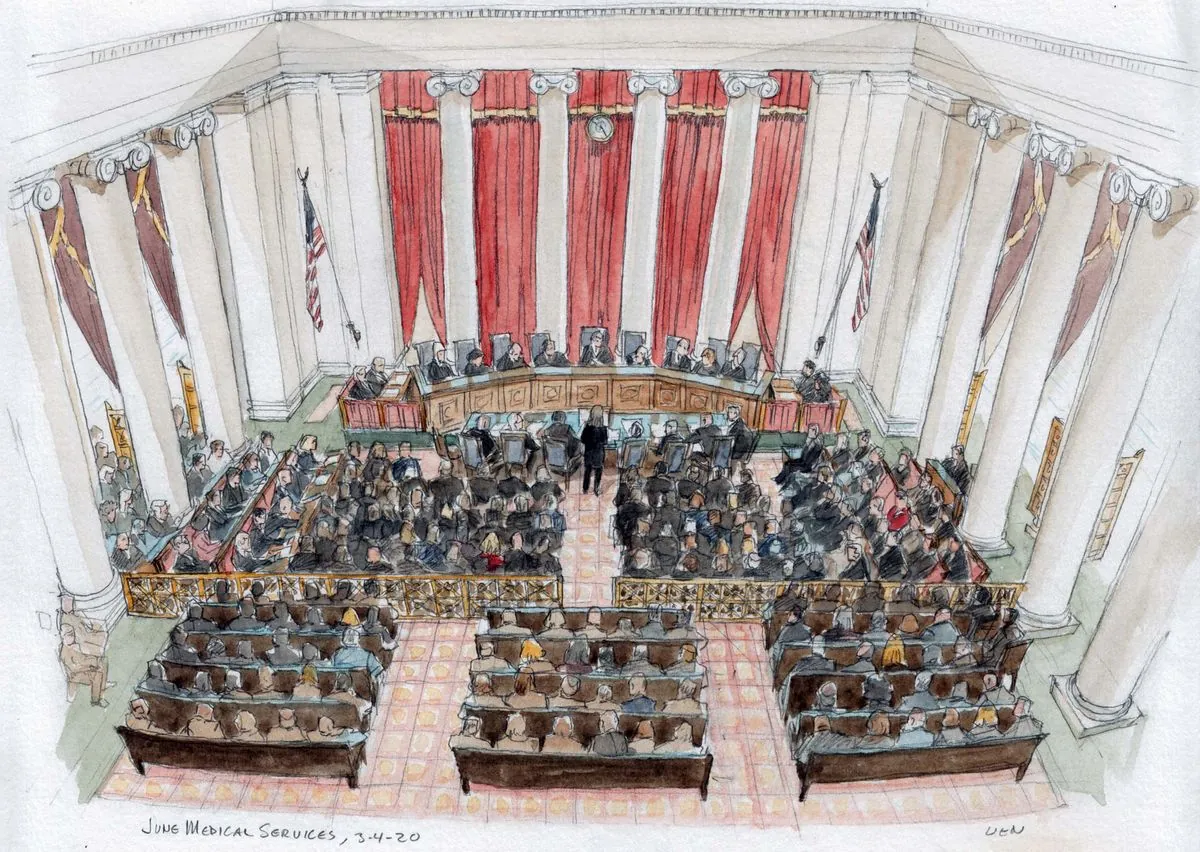The Supreme Court of the United States has commenced its new term, facing a docket filled with contentious issues that could significantly impact American society. As the nation's highest court, established in 1789, prepares to address cases involving gun control, transgender rights, and online content regulation, the looming 2024 presidential election casts a shadow over its proceedings.
John Roberts, serving as Chief Justice since 2005, leads the court into a term that began on October 2, 2023. The nine-member bench, currently composed of six conservative and three liberal justices, is set to tackle several high-profile cases:
- Regulation of "ghost guns"
- Age verification for online pornography
- Gender-affirming care for transgender minors
- Death penalty review for Richard Glossip
The court's decisions on these matters could have far-reaching consequences, potentially shaping policy and public opinion for years to come. The justices' rulings are final unless overturned by a constitutional amendment or a future Supreme Court decision, highlighting the weight of their deliberations.
One of the most anticipated cases involves the regulation of "ghost guns" – untraceable firearms assembled from kits. The Biden administration's efforts to subject these weapons to the same rules as fully assembled guns face scrutiny from a court that has historically been skeptical of broad government regulation. This case exemplifies the court's role in interpreting the scope of federal agency power, a recurring theme in recent terms.
The court will also address the constitutionality of laws banning certain gender transition treatments for minors under 18. This marks the first time the Supreme Court will consider this issue, which has become a focal point of political debate since 2021, when states began passing such restrictions. The case highlights the court's evolving engagement with LGBTQ+ rights, following its 2020 decision to extend employment protections to this community.
"We need an enforcement mechanism for our ethics policy to ensure public trust in the court's impartiality."
As the 2024 presidential election approaches, concerns arise about the potential for the Supreme Court to become embroiled in election-related disputes. Such involvement could echo the controversial 2000 Bush v. Gore decision, which effectively determined the outcome of that year's presidential race. The court's handling of any election-related cases could significantly impact its public perception and institutional legitimacy.
Recent polls indicate a decline in public confidence in the Supreme Court, with 70% of Americans believing the justices are guided by ideology rather than impartial reasoning. This sentiment follows the court's 2022 decision to overturn Roe v. Wade, eliminating the nationwide right to abortion after nearly five decades.
The Supreme Court's power of judicial review, established early in its history, allows it to declare laws unconstitutional. This authority underscores the court's crucial role in the American system of checks and balances. As the justices navigate the complex legal landscape of the coming term, their decisions will not only shape the law but also influence public trust in one of the nation's most fundamental institutions.
With approximately 7,000-8,000 petitions received each term, the Supreme Court typically hears oral arguments in about 80 cases. The selection process, governed by the "Rule of Four," requires four justices to agree to hear a case for it to be added to the docket. This careful curation ensures that only the most pressing and constitutionally significant issues reach the highest court in the land.
As the term unfolds, all eyes will be on the Supreme Court building, where "Equal Justice Under Law" is prominently engraved. The justices' deliberations and decisions in the coming months will test this ideal, shaping the legal landscape and potentially influencing the course of American democracy in this pivotal election year.
